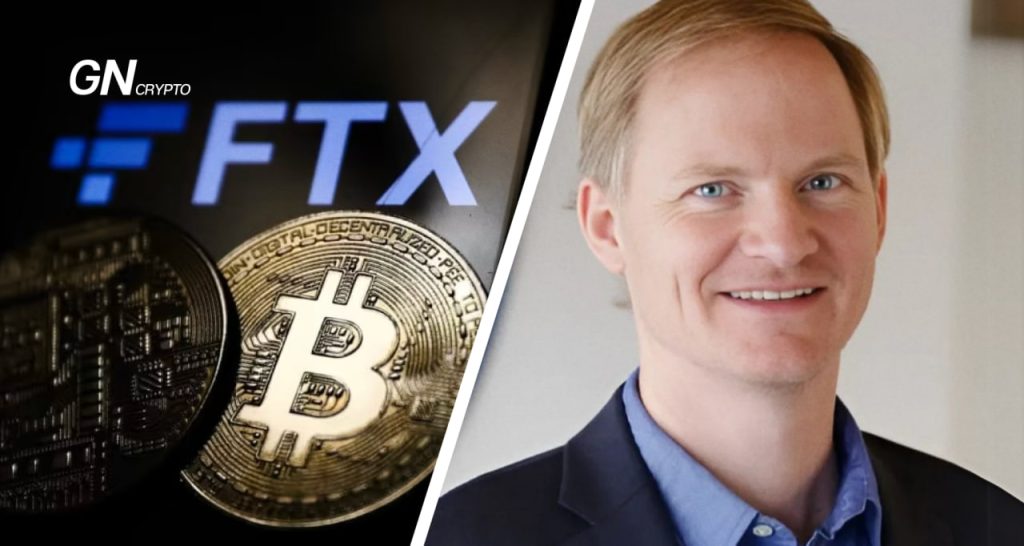A Million Bitcoins for the U.S.? Cynthia Lummis’ Ambitious Plan

Wyoming Senator Cynthia Lummis has proposed an ambitious plan to create a strategic Bitcoin reserve for the United States. In a recent interview, she explained how Bitcoin could strengthen the global position of the U.S. dollar and help address the growing national debt.
On this page
The Bitcoin Integration Plan
Lummis’ proposal calls for the U.S. Treasury to acquire one million bitcoins over five years, with the assets held for a minimum of 20 years. She suggested funding the initiative by leveraging existing government assets.
Bitcoin can serve as a hard asset to back the U.S. dollar as the world’s reserve currency,
the senator stated.
Lummis emphasized that this initiative could help reduce the U.S. national debt, which has now surpassed $36 trillion.
Lummis remains unfazed by Bitcoin's high volatility, as she believes it will be mitigated by a long-term holding strategy spanning two decades.
Bitcoin is volatile in the short term but leans upward over time,
she remarked.
Bitcoin’s average annual growth rate since its inception has been 55%. While this rate may decrease to around 35% in the coming years, Lummis is confident that this will still outperform the perpetually depreciating U.S. dollar, which is subject to unlimited issuance.
Senator Lummis spoke during an interview with CNBC. Source: YouTube
Legal and Practical Challenges
Lummis acknowledged that the Federal Reserve currently lacks the legal authority to hold Bitcoin. She stressed the importance of passing legislation to grant this authority, allowing the U.S. Treasury to convert Bitcoin holdings acquired through asset forfeiture funds into a strategic reserve.
Responding to concerns about Bitcoin’s relatively brief history, Lummis presented data and facts to validate its potential as a reserve asset.
Only 21 million bitcoins will ever be mined. Its scarcity, combined with its proven growth, makes it the right asset for this purpose,
she explained.
How About That, Elon Musk?
Lummis acknowledged Elon Musk’s innovative mindset but tactfully dismissed the idea of his involvement in legislative activities.
Elon Musk is an out-of-the-box thinker. His talents are best used to solve problems, not to manage consensus in Congress,
she noted, adding that advancing Bitcoin policy demands focused, purposeful leadership.
Prospects for 2025
Lummis believes that 2025 will be a critical year for advancing Bitcoin and digital asset policies. She is confident that legislative priorities will align with the perspectives of key figures in the financial and technology sectors.
In her view, the proposed strategic Bitcoin reserve could significantly reshape the U.S. financial system by integrating cryptocurrency into national policy and fostering a resilient, innovative economic framework. Lummis remains a steadfast advocate for the transformative potential of cryptocurrency in redefining America’s economic strategy.
Currently, the BITCOIN Act (an acronym for Boosting Innovation, Technology, and Competitiveness through Optimized Investment Nationwide Act) is under review by the Senate Committee on Banking, Housing, and Urban Affairs. To become law, the bill must pass both chambers of Congress and receive presidential approval.
“Bitcoin is digital gold,” says Senator Lummis. Source: Storyblocks
Who Are the Main Critics of the BITCOIN Act?
The BITCOIN Act, proposed by Senator Cynthia Lummis, has drawn opposition from several leaders and experts. Their concerns center on Bitcoin’s legal status, volatility, and the practical challenges of integrating it into government reserves.
One of the most prominent critics is Federal Reserve Chair Jerome Powell.
During the latest FOMC press conference, Powell stated that under current laws, the Federal Reserve does not have the authority to hold Bitcoin, raising questions about the feasibility of the proposed strategic Bitcoin reserve. Senator Lummis has acknowledged this legal hurdle.
Additionally, some experts question the necessity of creating a Bitcoin reserve. They highlight the potential difficulties of incorporating such a volatile digital asset into the national financial system and argue that Bitcoin’s speculative nature could undermine key objectives, such as strengthening the U.S. dollar and reducing national debt.
Others believe that, unlike traditional reserve assets like gold or oil, Bitcoin cannot provide the required stability and reliability.
Critics also worry that using public funds to purchase Bitcoin could expose taxpayers to significant losses if Bitcoin’s value were to drop unexpectedly.
Federal Reserve Chair Jerome Powell. Source: pro.rbc.ru
Profile: Senator Cynthia Lummis
Position: U.S. Senator from Wyoming (since 2021)
Party: Republican
Education:
- Bachelor of Science in Animal Science, University of Wyoming (1976)
- Bachelor of Arts in Biology, University of Wyoming (1978)
- Juris Doctor, University of Wyoming College of Law (1985)
Professional Experience:
- Ranch owner and private practice attorney
- Clerk for the Wyoming Supreme Court
- General Counsel to former Wyoming Governor Jim Geringer
- Director of the Wyoming Office of State Lands and Investments
Political Career:
- Member of the Wyoming House of Representatives
- Member of the Wyoming State Senate
- Wyoming State Treasurer
- U.S. Representative for Wyoming’s At-Large Congressional District
- U.S. Senator from Wyoming (2021–present)
Legislative Initiatives: Senator Lummis is a leading advocate for digital assets and blockchain technology. She has introduced several legislative proposals to integrate cryptocurrencies into the U.S. financial system.
Senator Cynthia Lummis. Source: bits.media
The content on The Coinomist is for informational purposes only and should not be interpreted as financial advice. While we strive to provide accurate and up-to-date information, we do not guarantee the accuracy, completeness, or reliability of any content. Neither we accept liability for any errors or omissions in the information provided or for any financial losses incurred as a result of relying on this information. Actions based on this content are at your own risk. Always do your own research and consult a professional. See our Terms, Privacy Policy, and Disclaimers for more details.





























